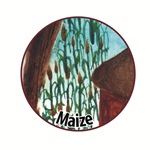Cloning, characterisation and validation of AltSB/Al tolerance in maize (G7010.03.02)
| Target country |
Kenya |
| Lead institute | Empresa Brasileira de Pesquisa Agropecuária (EMBRAPA, Agricultural Research Corporation), Brazil |
| Partners |
|
Over 50% of the world’s potentially arable lands consist of acid soils, where aluminium (Al) toxicity is the primary factor limiting maize yield, one of the world’s most important food crop. This problem is particularly acute inlow-input agricultural systems, which encompasses a large portion of the farmers in Sub-Saharan Africa, as well as smallscale farmers in other developing regions.
Aluminium tolerance is a quantitatively inherited trait in maize, a crop that displays considerable variation for this trait, as well a highly complex genome organisation.
Taking advantage of the aluminium (Al) tolerance gene cloned in sorghum (AltSB), as well as findings from recent GCP-supported research in maize where two major Al tolerance QTLs were co-localised with AltSB homologues (ZmMATE genes), we seek to characterise and validate functional ZmMATE genes or QTLs conferring superior Al tolerance in maize.
This strategy is premised on project genetic resources already available as near-isogenic lines for both QTLs, segregating populations and crosses between Brazilian sources of Al tolerance and Kenyan-adapted germplasm. This structured germplasm, as well as newly developed crosses, are being subjected to molecular, physiological and field evaluations in order to accomplish the functional validation of candidate genes or QTLs for improving Al tolerance in different tropical maize germplasm.
This work involves collaborators with a long history of successful partnership on maize and sorghum Al tolerance.
The research findings from this project will both greatly increase our understanding of the molecular and genetic basis for cereal Al tolerance, and – more importantly – will provide the basic materials for molecular breeding programmes focusing on improving maize production and stability on acid soils in Africa and other developing regions.
Objectives
1. Validation of functional ZmMATE genes or Al-tolerance QTLs in the maize Brazilian crosses
2. Development and screening of molecular markers for ZmMATE genes or Al tolerance QTLs studies
3. Validation of ZmMATE genes or Al tolerance QTLs in a panel of Kenyan and Brazilian maize lines
